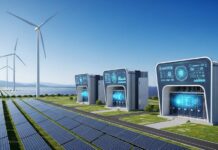Equinor Energy AS and Engie expect to sign a joint development agreement to progress the H2BE hydrogen project to the next stage of development and advance the plan towards concept selection this year, Equinor said in a release Feb. 1.
H2BE is a joint project which aims to develop production of low-carbon hydrogen from natural gas in Belgium.
The feasibility study of the 1 Gw project, which assessed the technical and economic suitability of a potential location at Engie’s site at Rodenhuize in Ghent area, has been completed.
Last year, more than 20 potential hydrogen off-takers expressed interest in the hydrogen project, which has also received letters of support from investment funds and authorities in Belgium, Equinor said.
In February 2021, the companies signed an MoU to develop low-carbon hydrogen projects together (OGJ Online, Feb. 18,2021). By October that year, the two companies announced the H2BE project and its use of autothermal reforming (ATR) technology combined with carbon capture and storage (CCS).
The ATR technology allows for decarbonization rates above 95% and for hydrogen production at large scale at competitive cost. The plan calls for captured CO2 to be transported in liquid form and permanently stored at a site in the sub-surface of the Norwegian North Sea.
The two companies are collaborating with Fluxys, the independent gas transmission system operator in Belgium to advance volumes to the market. Fluxys Belgium plans to develop open access hydrogen and CO2 infrastructure to connect supply and demand across industrial clusters in Belgium and neighboring countries, Equinor said.
All partners aim to start operations before 2030 in order to contribute to Belgium’s 2030 interim decarbonization targets.
































